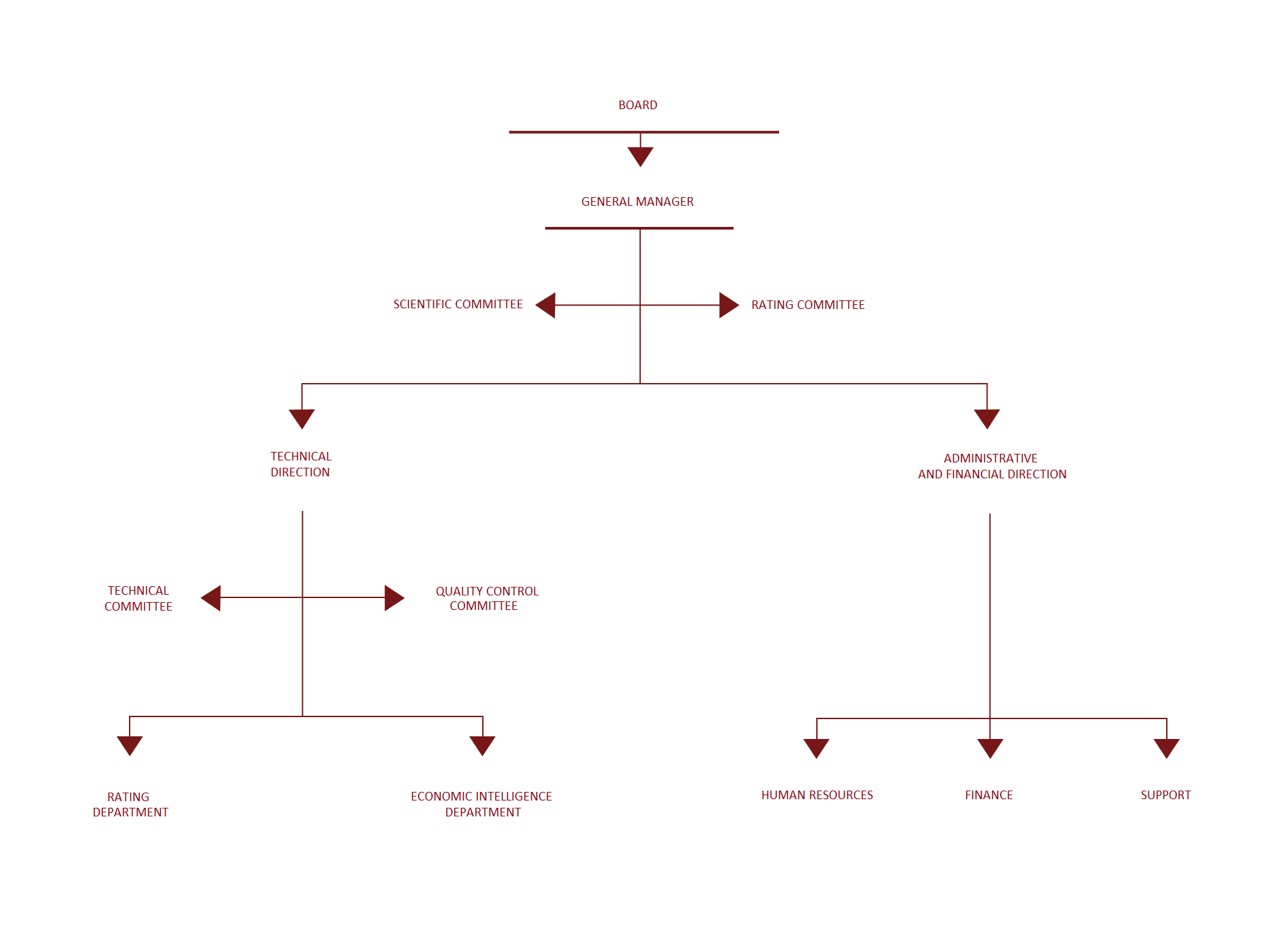
PBR Rating has a clear organizational structure, with a strict distinction between the technical activities related to analysis and evaluation on one hand, and other activities in economic intelligence on the other. In order to strengthen its research and development activities, particularly through the updating and continuous improvement of its sector-specific evaluation and rating frameworks, PBR Rating has established several local scientific committees. The functions of analysis and evaluation are strictly governed by three committees: the Rating Committee, the General Coordination Committee, and the Quality Control Committee.

The technical principles of PBR Rating's evaluation advocate for optimizing the rating process, emphasizing the efficiency of deployed measurement models based on objective and justifiable data. PBR Rating ensures the independence of its ratings through a dedicated IT solution that standardizes its evaluation processes. PBR's assessment relies on two main axes: technical expertise through Data Science solutions, financial engineering, and econometrics, as well as a cultural dimension, involving in-depth knowledge and appropriate participation of local experts in the overall rating scheme.
PBR Rating's evaluation aims to maximize the inherent value added to the rating procedure for all stakeholders by:
- Providing a fair and objective rating
- Offering reliable information and assessments at both micro and macro levels
- Confirming adherence to principles and market conditions
The entire PBR Rating rating process is based on the fundamental principles of transparency and accuracy. This involves clear communication before the assessment regarding the methodology used and the agency's obligations to the ecosystem. Furthermore, there is a pedagogical and explanatory process afterward to present the evaluation results. PBR Rating's rating service enables issuers to assess their financial solvency and resilience level.
